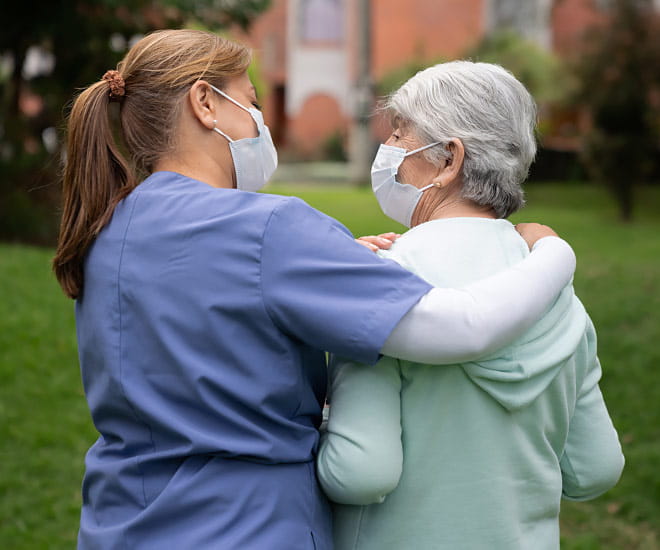
Hospice and Palliative Medicine Fellowship
Geisinger’s Hospice and Palliative Medicine Fellowship program trains compassionate, skilled physicians who are prepared to coordinate care for patients in hospitals, clinics and homes.
About us
Zankhana Mehta, MD, program director
Program highlights
Are you a compassionate physician who wants to guide patients and families through life-limiting illnesses in the clinic, hospital and home?
As a Geisinger Hospice and Palliative Medicine fellow, you’ll train for one year at a patient-focused system where you’ll be immersed in intensive training and research tailored to your interests.
Our ACGME-accredited Hospice and Palliative Medicine program, in place since 2011 and affiliated with the Internal Medicine Residency Program, accepts two fellows each year.
You’ll train with a diverse, dedicated team of mentors that includes hospice and palliative medicine board-certified physicians, advanced practitioners, a nurse navigator, social worker, chaplain, hospice nurses and a hospice medical director.
You’ll focus on adult patients, but you’ll also receive a month of training in pediatric palliative care so you’re ready to care for patients on across the full spectrum of life.
We want you to receive training that meets your goals and interests related to hospice and palliative medicine. Our elective rotations include medical oncology, radiation oncology, interventional pain, inpatient hospice, ethics and home palliative care.
Our program goals are:
- To train you to become a specialist and academic leader in the field of palliative care
- To prepare you to provide high-quality, evidence-based care with the latest innovations and advancements in medicine
- To help you develop excellent communication skills to treat diverse seriously ill people
- To prepare you to coordinate comprehensive, integrated care in various palliative and hospice care settings
A special type of physician pursues hospice and palliative medicine. If this is your focus, we’d welcome you to join our program and become the best clinician and communicator you can be.
Build the healthcare delivery system of tomorrow
About Geisinger
Geisinger serves more than 1 million people in central and northeastern Pennsylvania. We’ve been nationally recognized for innovative practices in quality, delivery models such as ProvenCare® and the use of an award-winning electronic medical record, Epic®. Our physician-led system has approximately 25,000 employees, including nearly 1,700 physicians, 10 hospital campuses, two research centers and a health plan with more than half a million members, all of which boost our hometown economies by $8 billion annually.
Location
Danville, Pa., is a unique and wonderful place to train. Opportunities for outdoor recreation are endless, the cost of living is low and traffic is almost nonexistent. In addition, we are close enough to Philadelphia, New York City and Washington, D.C., to make weekend getaways easy.
